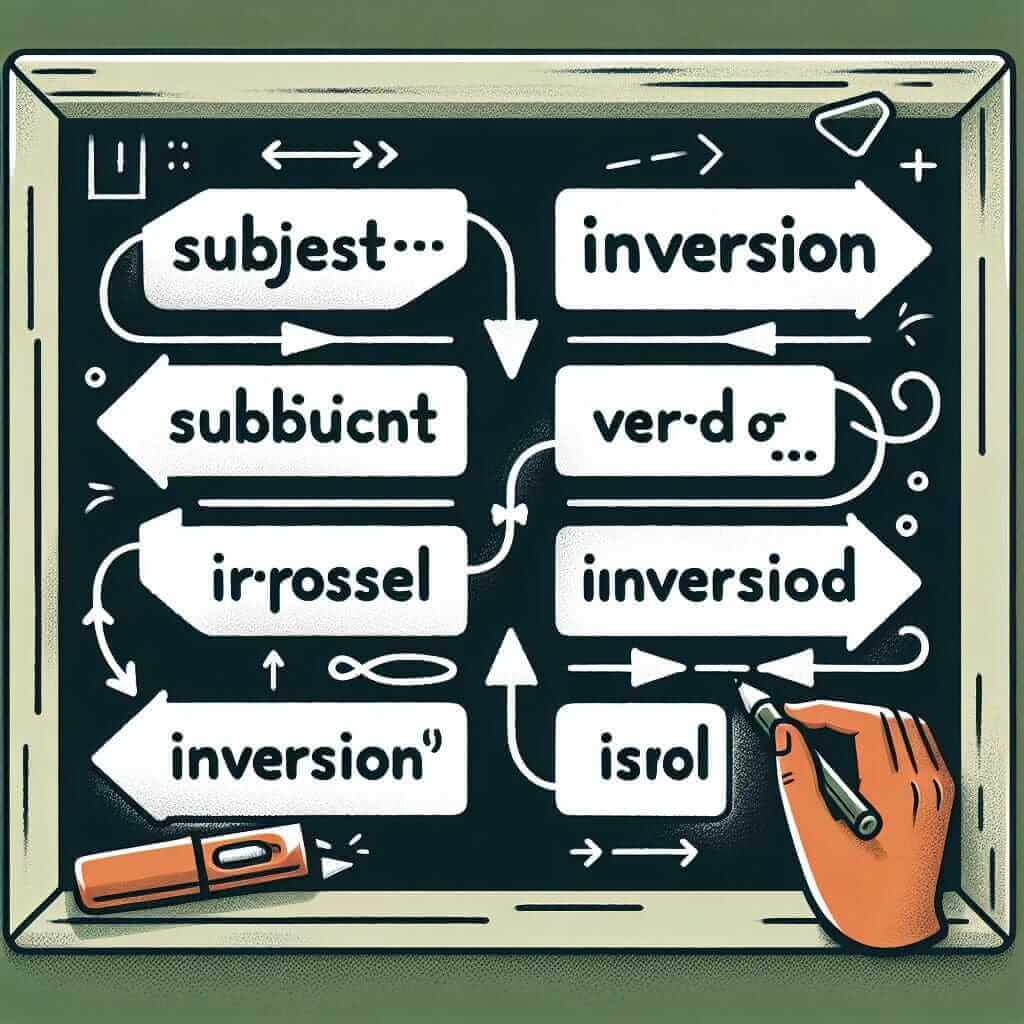“Not a word did she say in her defense” – a simple sentence, yet it carries a weight far beyond its words. It piques our curiosity and hints at a story unfolding. This intriguing structure, where the verb precedes the subject, is called inversion and is a sophisticated grammatical tool that can significantly enhance your IELTS score, particularly in the writing and speaking sections. Let’s delve into how it works and how you can utilize it effectively.
Understanding Inversion
Inversion, in its simplest form, is the reversal of the standard subject-verb order in a sentence. While the usual structure is Subject-Verb-Object (e.g., “She ate the apple”), inversion often places an adverbial phrase or a negative adverb at the beginning, followed by the auxiliary or main verb, and then the subject (e.g., “Never have I tasted such a delicious apple”).
Examples of Inversion:
-
Standard: He was so surprised that he couldn’t speak.
-
Inversion: So surprised was he that he couldn’t speak.
-
Standard: She had never seen such beauty before.
-
Inversion: Never before had she seen such beauty.
-
Standard: The problems were so complex that they couldn’t be solved easily.
-
Inversion: So complex were the problems that they couldn’t be solved easily.
In each of these examples, the inversion adds emphasis and a more literary, formal tone to the sentence, making it suitable for achieving a higher band score in the IELTS writing test.
“Not a Word Did She Say in Her Defense”: Structure and Analysis
Let’s break down our key sentence:
“Not a word did she say in her defense.”
- “Not a word”: This negative adverbial phrase starts the sentence, immediately grabbing the reader’s attention and setting a dramatic tone.
- “did she say”: Here, we see the inversion – the auxiliary verb “did” precedes the subject “she.”
- “in her defense”: This prepositional phrase adds context and further emphasizes the silence of the subject.
This structure is particularly effective at highlighting the unexpected or noteworthy absence of something – in this case, her lack of defense.

When and How to Use Inversion
1. After Negative Adverbials:
Inversion is commonly used after negative adverbials and adverbial phrases like:
- Never: Never before have I witnessed such bravery.
- Rarely: Rarely do we see such dedication to a cause.
- Seldom: Seldom does an opportunity like this present itself.
- Not only: Not only did he win the race, but he also set a new record.
- Hardly/Scarcely: Hardly had she finished speaking when the applause erupted.
- No sooner: No sooner had he arrived than the phone rang.
- Under no circumstances: Under no circumstances should you open that door.
2. After “Only” for Emphasis:
- Standard: He realized his mistake only later.
- Inversion: Only later did he realize his mistake.
3. In Conditional Sentences (to replace “if”):
- Standard: If I had known the truth, I wouldn’t have gone.
- Inversion: Had I known the truth, I wouldn’t have gone.
Applying Inversion in IELTS:
Writing Task 1 (Describing Trends):
Instead of: “The number of tourists visiting the country was very low in 2010.”
Use: “In 2010, rarely did the number of tourists visiting the country reach such a low.”
Writing Task 2 (Expressing Opinions):
Instead of: “People should not underestimate the importance of education.”
Use: “Under no circumstances should the importance of education be underestimated.”
Speaking Part 3 (Expressing Complex Ideas):
Instead of: “I have never experienced such kindness from strangers before.”
Use: “Never before have I encountered such generosity from strangers.”
Common Errors to Avoid:
- Incorrect Verb Form: Ensure the auxiliary verb agrees with the tense and subject of the sentence.
- Overuse: Inversion is effective when used sparingly. Overusing it can make your writing sound forced or unnatural.
Conclusion
Mastering inversion can add sophistication and variety to your language, showcasing your command of grammar and potentially boosting your IELTS score. Practice incorporating it into your writing and speaking, paying close attention to the structure and ensuring it sounds natural and fluent in context. Remember, effective communication relies not only on grammatical accuracy but also on using the right structures to create impact and engage your audience.